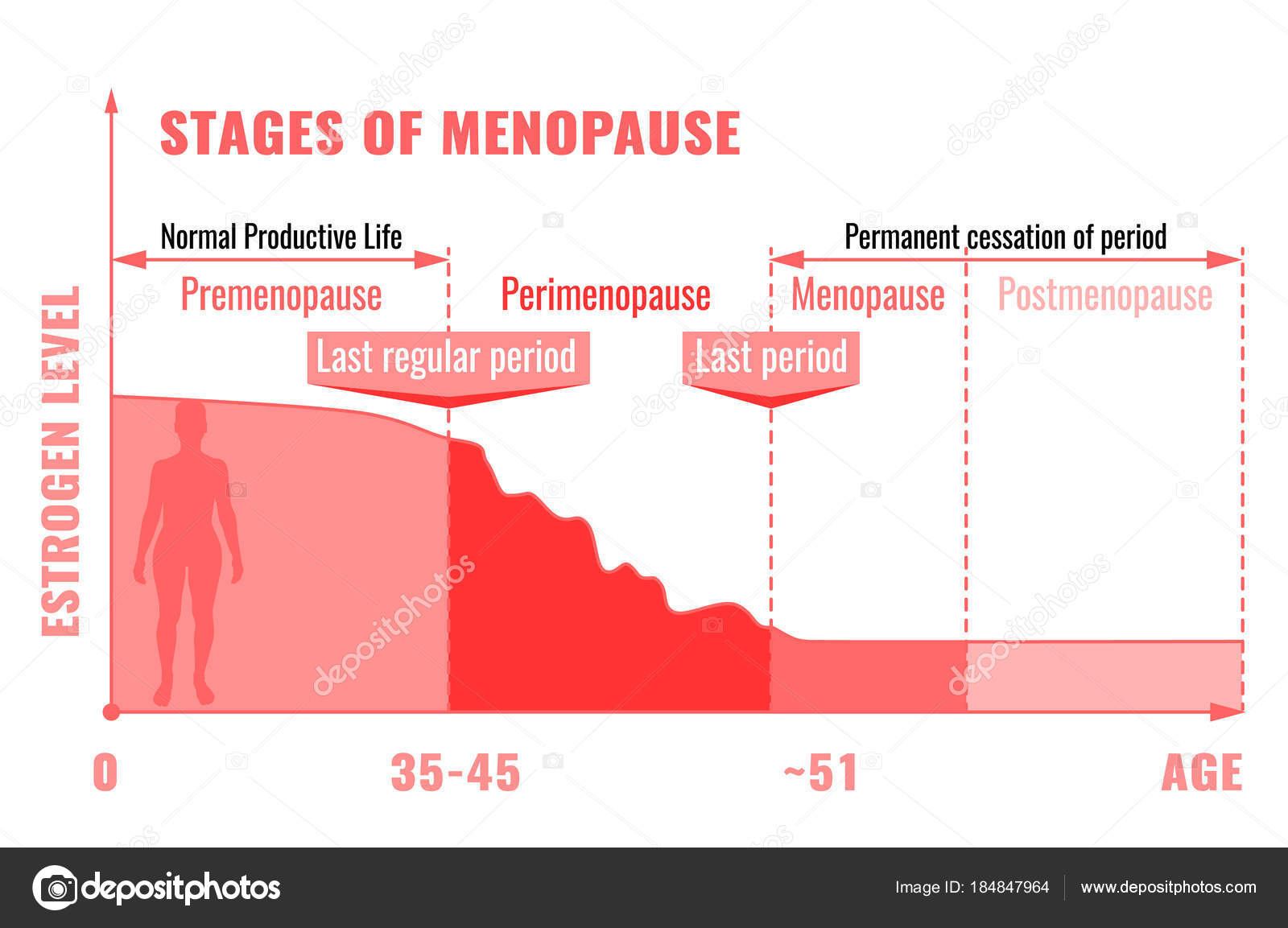Menopause, a significant milestone in a woman’s life, marks the end of her reproductive years. The average age of onset is 51, but it can vary widely depending on individual factors. This article explores the complexities of menopause, from its definition and symptoms to its impact on health and lifestyle.
As women approach menopause, their bodies undergo a series of hormonal changes that can lead to a range of physical and emotional symptoms. Understanding the average age of onset and the factors that influence it can help women prepare for this transition and make informed decisions about their health.
Definition of Menopause
Menopause is a natural biological transition that marks the end of a woman’s reproductive years. It is characterized by the cessation of menstruation and the loss of fertility.
Menopause typically occurs between the ages of 45 and 55, with an average age of 51. However, it can occur earlier or later in some women.
Biological Changes During Menopause
Menopause is caused by a decline in the production of estrogen and progesterone by the ovaries. This decline leads to a number of physical and emotional changes, including:
- Hot flashes
- Night sweats
- Mood swings
- Sleep disturbances
- Vaginal dryness
- Loss of bone density
- Increased risk of heart disease
Menopause can be a challenging time for women, but it is also a natural part of life. By understanding the changes that occur during menopause, women can better prepare for and manage this transition.
Age of Onset

Menopause typically begins between the ages of 45 and 55, with an average age of 51 in the United States. However, the age range can vary significantly, with some women experiencing menopause as early as their 30s or as late as their 60s.
Factors Influencing Age of Menopause Onset
Several factors can influence the age at which a woman begins menopause, including:
- Genetics:Women with a family history of early menopause are more likely to experience it at a younger age.
- Lifestyle:Certain lifestyle factors, such as smoking and obesity, can contribute to earlier menopause.
- Medical Conditions:Medical conditions, such as autoimmune diseases and thyroid disorders, can also affect the age of menopause onset.
Symptoms and Effects

Menopause is a significant life event that brings about various physical and emotional changes. The symptoms associated with menopause can vary in severity and duration, impacting a woman’s overall well-being.
One of the most common symptoms of menopause is hot flashes, which are sudden feelings of intense heat and sweating that can occur several times a day. Night sweats, another prevalent symptom, are similar to hot flashes but occur during sleep, causing discomfort and disruption to sleep patterns.
Mood changes are also common during menopause, as hormonal fluctuations can affect a woman’s emotional state. These changes may include irritability, mood swings, anxiety, and difficulty concentrating.
Long-Term Health Implications
In addition to the immediate symptoms, menopause can also have long-term health implications. Osteoporosis, a condition that weakens bones and increases the risk of fractures, is a concern for postmenopausal women due to the decline in estrogen levels.
Heart disease is another potential long-term health issue associated with menopause. The loss of estrogen can contribute to the development of plaque in the arteries, increasing the risk of heart attacks and strokes.
Diagnosis and Management
Diagnosing menopause involves a comprehensive assessment of symptoms, medical history, and physical examination. A doctor may order blood tests to measure hormone levels, particularly follicle-stimulating hormone (FSH) and estradiol. An ultrasound may be performed to evaluate the ovaries and uterus.
Treatment options for managing menopausal symptoms vary depending on individual needs and preferences. Hormone therapy, which involves taking estrogen or progesterone, can effectively alleviate hot flashes, night sweats, and vaginal dryness. Lifestyle modifications, such as regular exercise, a balanced diet, and stress management techniques, can also help improve overall well-being during menopause.
Benefits and Risks of Treatment Approaches
- Hormone therapy:While effective in reducing symptoms, it may carry risks such as increased risk of breast cancer, blood clots, and heart disease.
- Lifestyle modifications:These are generally safe and can provide long-term benefits for overall health, but may not be sufficient to completely alleviate all symptoms.
Impact on Lifestyle

Menopause can have a significant impact on a woman’s daily life and activities. The physical and emotional symptoms of menopause can affect her ability to work, maintain relationships, and enjoy her overall well-being.Menopausal symptoms such as hot flashes, night sweats, mood swings, and fatigue can disrupt a woman’s sleep, making it difficult to concentrate and perform at her best during the day.
The hormonal changes associated with menopause can also lead to changes in libido, which can affect relationships with partners.
Coping with the Challenges of Menopause
Coping with the challenges of menopause requires a multifaceted approach that addresses both the physical and emotional aspects of the experience.* Lifestyle Modifications:Making healthy lifestyle choices, such as getting regular exercise, eating a balanced diet, and getting enough sleep, can help reduce the severity of menopausal symptoms.
Medical Interventions
Hormone replacement therapy (HRT) and other medications can help alleviate hot flashes, night sweats, and other physical symptoms.
Stress Management Techniques
Stress can exacerbate menopausal symptoms, so finding effective stress management techniques, such as yoga, meditation, or spending time in nature, can be beneficial.
Emotional Support
Seeking support from friends, family, or a therapist can provide emotional validation and coping mechanisms.
Common Queries
What are the common symptoms of menopause?
Hot flashes, night sweats, mood changes, vaginal dryness, and sleep disturbances are common symptoms of menopause.
What factors can influence the age of menopause onset?
Genetics, lifestyle factors such as smoking and obesity, and certain medical conditions can influence the age of menopause onset.
How is menopause diagnosed?
Menopause is diagnosed based on a woman’s symptoms and a blood test that measures hormone levels.
What are the treatment options for menopause?
Hormone therapy, lifestyle modifications, and certain medications can be used to manage menopausal symptoms.